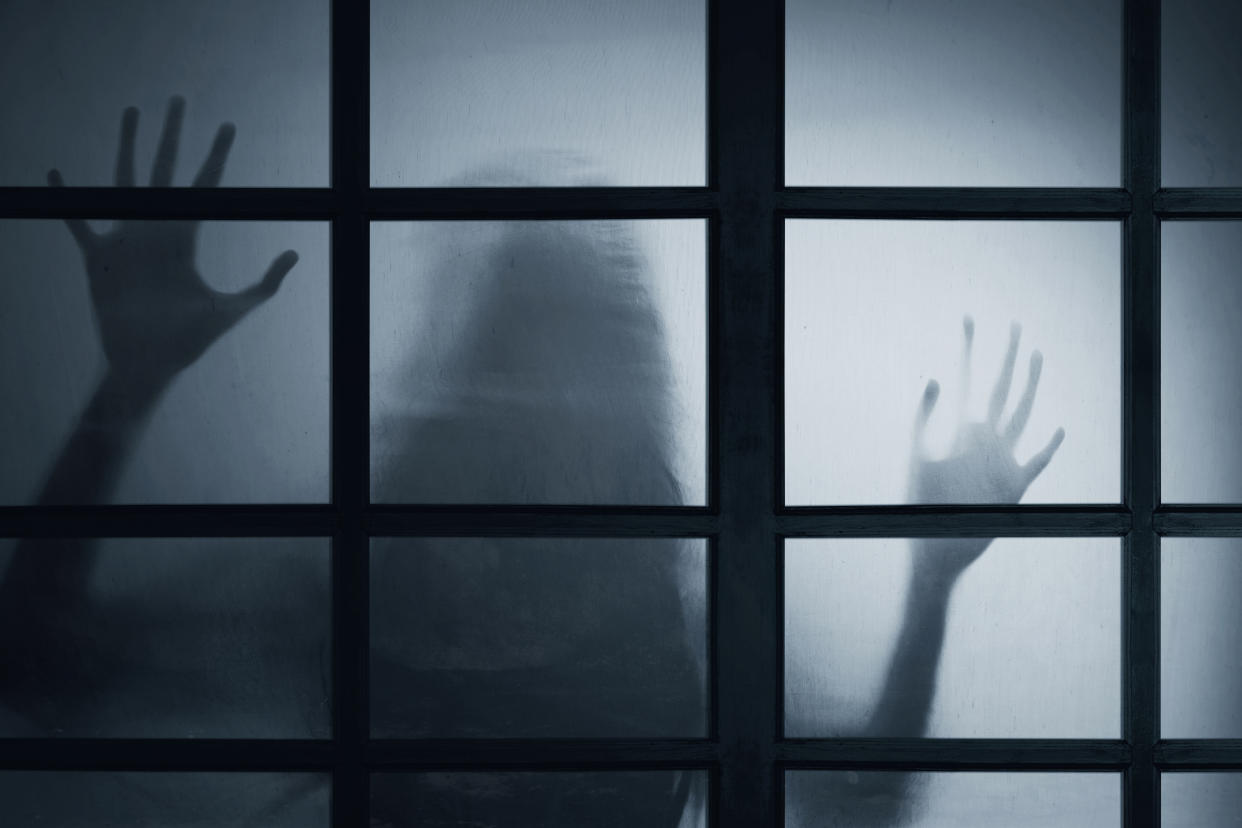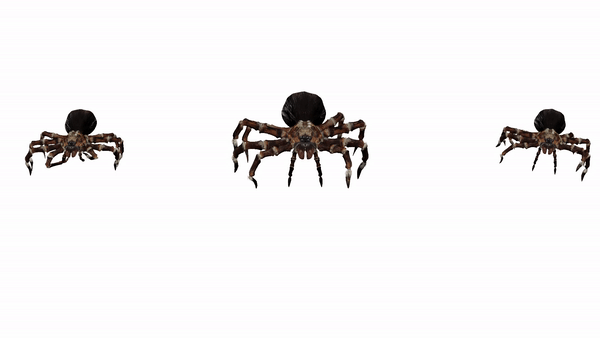Afraid of zombies, ghosts, clowns? You're not alone. Experts unpack Americans' biggest Halloween fears

The year 2020 has been filled with lots of uncertainty and fear as the country faces a global pandemic and an upcoming presidential election. But it seems that nothing triggers fear quite like the month of October as people anticipate Halloween and the spookiness it conjures.
“Halloween, by nature of the colors used and the themes behind it, heightens everyone’s fears. It’s meant to activate that part of us in ‘fun’ ways, despite it not being fun for all,” Jen Hartstein, a practicing psychologist in New York City tells Yahoo Life. “Halloween specifically focuses on the element of surprise, which automatically activates our sense that we are in danger. That biological reaction gets triggered and causes an increase in fear and anxiety.”
Dare to face your fears? Click on the below image to come face-to-face with some seriously fearsome foes - in augmented reality.
Hartstein points out that although “fear exists on a continuum” that allows some people to be more fearful of specific things over others, every person has an inherent sense of fear as a result of former survival tactics.
“Fear is a hardwired response for us and is a normal experience. It helps us to determine when there is a threat and if we need to activate ourselves toward safety or if things are safe and OK,” she explains. “Although it might not be as needed for survival today, we do lean on our internal reactions to help us stay safe and make good decisions. For example, if we get an internal message that some alleyway we walk by is unsafe, we react to that sensation and might take a different route.”
Although there’s a specific set of things that seem to cause that type of reaction around Halloween time, like zombies and ghosts, a Chapman University study examining America’s Top Fears of 2019 suggests that these spooky things plague people year-round.
Three’s a party. Click on the below spiders to experience in 3D.
Just over a quarter of Americans are afraid of spider-like insects and reptiles, according to the study, putting them on the list just below kidnapping and above murder by someone you know. However, some less-prevalent fears that exist are associated with ghosts, zombies and clowns. Studies of people’s fears of the former suggest that people are “conditioned” to be fearful of insects, especially those with erratic movements like spiders that strike a fight or flight reaction.
Don’t worry, it doesn’t bite. Click on the below to experience in 3D.
When it comes to figures like zombies, Hartstein suggests that it’s the unknown that triggers fear. An in-depth history of zombies by Vox explains that the fear even stems from what zombies have represented, rather than the undead beings themselves.
“Until the 1940s, zombies were largely a reflection of the fears of voodooism and blackness. But as the political landscape of America shifted, the creatures soon acquired new symbolism,” the article reads. “By 1940, the zombie had staggered from a little-known piece of Haitian folklore to a widespread cultural phenomenon in America.”
BRAIIIINS! Carefully and cautiously click on the below zombies to experience in 3D.
As the years went on, the very uncertainty that zombies represented evolved from anxieties around World War II to those in response to the civil rights movement and even the fear of mass contagion that consumed the minds of Americans through the threats of Ebola, AIDS and SARS. Today, fears about the coronavirus pandemic, climate change and economic instability can be related back to conversations about a possible zombie apocalypse.
“Zombies, by nature, grapple with the fear of losing agency. But these stories are just as much about the fantasy for regaining it,” the article says. “The zombie scares us by purging our darkest deeds — and in doing so, it makes us question what it means to be human.”
Quite similarly, the fear of clowns that 8.2 percent of Americans surveyed experiences also stems from the unknown. Psychologist Rami Nader even suggests that the makeup worn by clowns aids that uncertainty as it disguises “true identities and feelings,” according to The Conversation. Frank T. McAndrew, a social psychologist and Cornelia H. Dudley Professor of Psychology at Knox College suggests in the same article that “inherent ambiguity” of clowns is what makes them scary.
Do you have coulrophobia? Click on the below to find out in 3D.
“They seem to be happy, but are they really? And they’re mischievous, which puts people constantly on guard,” he writes. “People interacting with a clown during one of his routines never know if they are about to get a pie in the face or be the victim of some other humiliating prank. The highly unusual physical characteristics of the clown – the wig, the red nose, the makeup, the odd clothing – only magnify the uncertainty of what the clown might do next.”
The Chapman University study suggests that only 7.7 percent of Americans are afraid of ghosts, although Ricardo de Oliveira-Souza, a psychiatrist at The D'Or Institute for Research and Education (IDOR) in Rio de Janeiro, wrote in 2018 that the fear of the supernatural, experienced by people around the world, “may be more common than usually thought.”
Boo! Click on the below for a ghostly 3D experience.
“Owing to shame and self-consciousness, the fears were seldom if ever discussed with health care professionals,” Oliveira-Souza’s study published in Frontiers in Psychiatry about phobias of the supernatural reads. “It must actively be sought for in patients complaining of poor sleep and daytime somnolence, and in patients with other types of phobia. The differential diagnosis of phobia of the supernatural includes nocturnal panic attacks, psychosis, other types of phobia that tend to occur during the night, dissociative states of sleep, dementia, and a few rare presentations of epilepsy.”
Similar to spiders, the study suggests that this fear is something that people are conditioned to experience during childhood. Although many then grow out of the phobia, it can strongly impact people into adulthood.
For those who don’t experience these fears year-round, it’s not unusual for the anxiety to be triggered as Halloween approaches — especially as Americans currently face so much uncertainty elsewhere in their lives.
“So much about Halloween is related to the surprise element, which impacts all of us differently,” Hartstein says. “But for many that fear response gets activated, making it challenging to enjoy.”
AR experience produced by Jon San and Tim Chaffee.
Read more from Yahoo Life:
Halloween tips and ideas to safely celebrate during the coronavirus pandemic
You can now dress up as a sexy ‘Mail-in Ballot’ for Halloween, thanks to Yandy
One man's secret to a socially distant Halloween: A robot who'll deliver candy to trick-or-treaters
Want lifestyle and wellness news delivered to your inbox? Sign up here for Yahoo Life’s newsletter.






